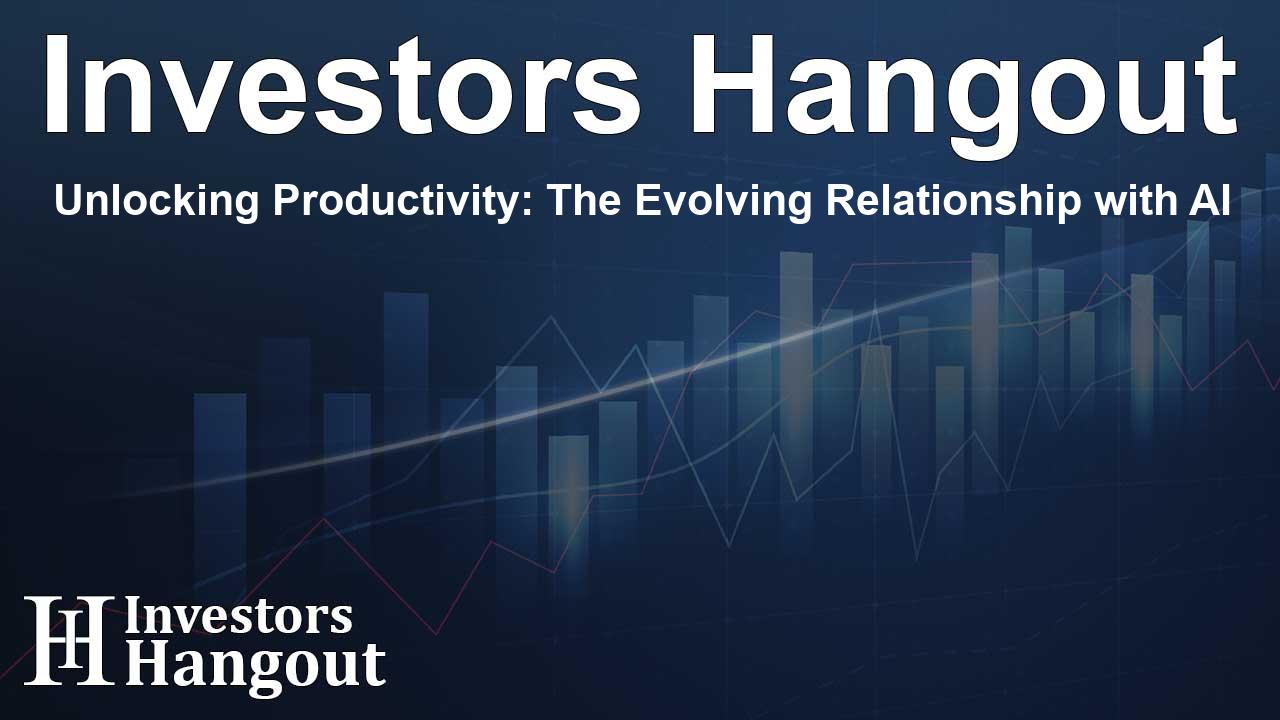Unlocking Productivity: The Evolving Relationship with AI

Upwork Research Highlights AI's Role in Workplaces
A recent study conducted by Upwork Inc. (NASDAQ: UPWK) sheds light on the evolving dynamic between artificial intelligence (AI) and human workers. This research reveals that AI is not merely a tool for enhancing productivity but is transforming into a collaborative partner in the workforce. Organizations are now required to rethink how they structure roles and foster connections among team members. This shift signifies that sustainable productivity doesn't just stem from technology—it fundamentally arises from enhancing human interactions accompanied by AI innovation.
Shifting From Tools to Teammates
The latest findings from Upwork are part of a comprehensive series analyzing the changing relationship between AI, productivity, and labor markets. Building upon previous revelations where over three-quarters of employees indicated an increase in workload due to AI, this year's study reveals that many workers are actually experiencing up to a 40% increase in their productivity as a result of using AI. However, this boost comes at a cost, impacting workers' emotional and relational health.
Independent Professionals Leading the Way
Interestingly, independent workers are embracing AI in ways that reflect an early model of successful collaboration. They are quickly adapting AI to enhance their skill sets and report a significantly improved sense of well-being and engagement with their work compared to their full-time counterparts.
Global Insights from a Diverse Survey
This insightful study is grounded in a global survey involving 2,500 workers, encompassing executives, full-time employees, and freelancers. It explores the broad implications of how AI changes daily operations, as well as how people relate to their tools and colleagues. As AI becomes an integral part of work processes, Upwork noted a striking 300% rise in monthly searches for AI-skilled talent in recent months.
The Productive Yet Challenged Workforce
In this new landscape, Dr. Kelly Monahan, managing director of the Upwork Research Institute, emphasizes the need for organizations to support both efficiency and human connection. The research indicates that although AI augments productivity, it poses risks such as burnout, especially for those who heavily rely on it. Notably, the report shows that while 88% of high-performing AI users experience burnout, many feel disconnected from their organization’s strategic objectives regarding AI use.
Trust and Relationships in the Age of AI
A significant shift in workplace relationships is also emerging, where many AI users express greater trust in AI systems than in their human coworkers. This marks an interesting trend where human-like interactions and politeness are being increasingly observed in communications with AI, suggesting a deeper emotional connection forming between humans and machines.
Freelancers: The Positive AI Narrative
Conversely, freelancers are reporting a healthier synergy with AI. Approximately 90% of freelancers credit AI with a positive impact on their professional lives, utilizing it significantly for skill acquisition and niche specialization, leading to better outcomes in their careers.
Redesigning Work for the Future
The studies reflect a transformative moment in work environments. Dr. Gabby Burlacu, senior research manager at the Upwork Research Institute, notes that a substantial number of executives believe AI will radically redefine work practices. The ultimate goal lies not just in the adoption of AI technologies but in crafting frameworks that allow humans and AI to flourish together while fostering trust and collaboration.
Creating Sustainable Dynamics
The road to a sustainable, AI-integrated organization entails envisioning work as a dynamic partnership rather than a competition between AI and humans. To achieve this integration, companies need to formulate new organizational models that prioritize human relationships and responsible AI design, ensuring mutual growth in the workplace.
Frequently Asked Questions
What key finding did the Upwork study reveal?
The Upwork study revealed that AI users report a 40% increase in productivity, although it comes with heightened risks of burnout.
How does AI impact freelancers differently than full-time employees?
Freelancers tend to report a more positive relationship with AI, using it effectively for skill development and niche specialization.
What shift in trust dynamics was noted in the research?
The study found that many high-performing AI users trust AI more than their colleagues, changing the traditional notions of teamwork.
What can organizations do to better integrate AI?
Organizations should focus on designing systems that prioritize human connections alongside AI productivity to foster a healthier work environment.
What is the implication of the increasing use of AI in the workplace?
As AI becomes integral to workflows, it's essential for companies to rethink their communication norms and align AI usage with their broader goals to avoid disconnect and burnout.
About The Author
Contact Thomas Cooper privately here. Or send an email with ATTN: Thomas Cooper as the subject to contact@investorshangout.com.
About Investors Hangout
Investors Hangout is a leading online stock forum for financial discussion and learning, offering a wide range of free tools and resources. It draws in traders of all levels, who exchange market knowledge, investigate trading tactics, and keep an eye on industry developments in real time. Featuring financial articles, stock message boards, quotes, charts, company profiles, and live news updates. Through cooperative learning and a wealth of informational resources, it helps users from novices creating their first portfolios to experts honing their techniques. Join Investors Hangout today: https://investorshangout.com/
The content of this article is based on factual, publicly available information and does not represent legal, financial, or investment advice. Investors Hangout does not offer financial advice, and the author is not a licensed financial advisor. Consult a qualified advisor before making any financial or investment decisions based on this article. This article should not be considered advice to purchase, sell, or hold any securities or other investments. If any of the material provided here is inaccurate, please contact us for corrections.
